Introduction
Hello guys! Welcome to my guide. Today we shall be discussing a topic that broadly applies to any game one would wish to play competitively; namely, the mentality we need in order to reach the very top levels of play. This guide does not aim to teach you anything about ‘how to play’ Hearthstone. Instead, this guide aims to make you question the way you think about the game. If your thought process is currently flawed, I aim to show why you should endeavour to change. The “Are You A Scrub” section below is intended to help you decide whether this guide is aimed at you or not.
The structure of the guide looks a bit like this: First, we work out if you are (or are not) a ‘scrub’. Once I’ve done that I will define what a ‘scrub’ actually is (its not what you think!). Next, I talk about what it means to ‘play to win’. At this point, I hope you will all be open-minded enough to listen to my argument as to why you should play ‘Face Hunter’. Lastly, we have the conclusions & comments. Speaking of comments, feel free to leave some!
There are two more things I want to mention in the introduction. First, I would like to point out that this article is heavily influenced by David Sirlin’s book ‘Playing to Win’, which can be read for free on his website (link in references section). The second thing I would like to point out is that Part Two will talk about several ‘dirty tactics’ we can use to win Hearthstone games. The purpose of Part One is to mentally prepare you for the use of such tactics.
Okay let’s begin! Are you a ‘scrub’?
Are You A Scrub? (Quiz)
MINOR ARTICLE UPDATE (04/03/2015): It has come to my attention that many readers of this article object to being pejoratively labelled ‘scrubs’. In response, I would like to make two things clear: (a) ‘Scrub’ has a special meaning in the context of this article. When you hear me use the word, try to forget the usual day-to-day connotations the word has. (b) I only use the word ‘scrub’ because my article heavily references Sirlin’s ‘Play to win’ book and ‘scrub’ is the term he used to describe a certain sort of player. When writing this article I feared that using my own terminology could have lead to unnecessary confusion. For what its worth, I consider ‘scrub’ an unfortunate term that is unnecessarily inflammatory.
Below I have listed a few statements. I want you to go through each one and consider to what extent you agree/disagree with them.
- I think that some decks/strategies in Hearthstone are just plain ‘cheap’.
- Some decks require ‘no skill to play’.
- I look down on players that use ‘no skill’ and/or ‘cheap’ decks.
- I choose not to play certain decks because they require ‘no skill’ and/or are ‘cheap’.
Of these statements, I want you to pay the closest attention to numbers (3) and (4); if you answered yes to those statements, then this guide was written for you. For those of you that disagreed with statements (3) and (4), you can (probably) safely skip all of Part One since it is likely that you already play Hearthstone with a ‘winning mentality‘. You may however want to check out Part Two since that part of the guide covers a few sneaky tactics you might not have seen before; tactics which –given your answers to my mini-quiz– you may be willing to employ.
Okay, so let’s get this guide started! The first thing we need to do is define what I mean by the term ‘scrub’. Let’s do that now…
What’s a Scrub?
What is a ‘scrub’ in Hearthstone? Before we start, I want to make three things clear:
- The Hearthstone scrub is not necessarily a bad player; they may build/play good decks, understand the meta-game, and play each turn with a good degree of technical proficiency.
- The title of this guide is “Playing to Win Part One: Defeating the Scrub Mentality”. I want you to focus on the very last word; ‘mentality’. This is really important; the definition of ‘scrub’ I am using concerns how you think about the game. In short, I’m interested in talking about your attitude, not your rank on ladder!
- [LEGAL JARGON, lol] The views and opinions expressed in this article are not necessarily representative of the views and opinions of individual companies, registered users, nor of the owner and/or administrators of Hearthstoneplayers.com.
The simplest definition of a scrub is “…a person that does not ‘play to win’ .” In Sirlin’s book, he defines what a ‘scrub’ is in this chapter. If you have time, I would recommend you read it. However, I have also quoted his work at length below (square brackets [] = my editorial notes, BOLD TEXT = my emphasis) :
[…] A scrub is a player who is handicapped by self-imposed rules that the game knows nothing about. A scrub does not play to win.
Now, everyone begins as a poor player—it takes time to learn a game and get to the point where you know what you’re doing. There is the mistaken notion, though, that by merely continuing to play or “learn” the game, one can become a top player. In reality, the “scrub” has many more mental obstacles to overcome than anything actually going on during the game. The scrub has lost the game even before it starts. He’s lost the game even before deciding which game to play. His problem? He does not play to win.
The scrub would take great issue with this statement for he usually believes that he is playing to win, but he is bound up by an intricate construct of fictitious rules that prevents him from ever truly competing. […]
In Street Fighter, the scrub labels a wide variety of tactics and situations “cheap.” This “cheapness” is truly the mantra of the scrub. Performing a throw on someone is often called cheap. […] As far as the game is concerned, throwing is an integral part of the design—it’s meant to be there—yet the scrub has constructed his own set of principles in his mind that state he should be totally impervious to all attacks while blocking. The scrub thinks of blocking as a kind of magic shield that will protect him indefinitely. Why? Exploring the reasoning is futile since the notion is ridiculous from the start.
You will not see a classic scrub throw his opponent five times in a row. But why not? What if doing so is strategically the sequence of moves that optimizes his chances of winning? Here we’ve encountered our first clash: the scrub is only willing to play to win within his own made-up mental set of rules. [And] these rules can be staggeringly arbitrary. […]
The first step in becoming a top player is the realization that playing to win means doing whatever most increases your chances of winning. That is true by definition of playing to win. The game knows no rules of “honor” or of “cheapness.” The game only knows winning and losing.
The scrub has still more crutches. He talks a great deal about “skill” and how he has skill whereas other players—very much including the ones who beat him flat out—do not have skill. The confusion here is what “skill” actually is. In Street Fighter, scrubs often cling to combos as a measure of skill. A combo is a sequence of moves that is unblockable if the first move hits. Combos can be very elaborate and very difficult to pull off. But single moves can also take “skill,” according to the scrub. The “dragon punch” or “uppercut” in Street Fighter is performed by holding the joystick toward the opponent, then down, then diagonally down and toward as the player presses a punch button. This movement must be completed within a fraction of a second, and though there is leeway, it must be executed fairly accurately. Ask any scrub and they will tell you that a dragon punch is a “skill move.”
I once played a scrub who was actually quite good. That is, he knew the rules of the game well, he knew the character matchups well, and he knew what to do in most situations. But his web of mental rules kept him from truly playing to win. He cried cheap as I beat him with “no skill moves” while he performed many difficult dragon punches. He cried cheap when I threw him five times in a row asking, “Is that all you know how to do? Throw?” I gave him the best advice he could ever hear. I told him, “Play to win, not to do ‘difficult moves.’” This was a big moment in that scrub’s life. He could either ignore his losses and continue living in his mental prison or analyze why he lost, shed his rules, and reach the next level of play.
Okay, so now you should have a good understanding of what a ‘scrub’ is. Basically, it’s a player that does not truly ‘play to win’. While the scrub can have a good degree of technical skill, the problem is that his/her very own mind throws up barriers to success.
Most games simply do not understand notions of ‘cheapness’ and ‘honour’, but games usually do understand who wins and who loses. Therefore in games that don’t care about how honourable you are, deciding to act honourably and/or refusing to use ‘cheap tactics’ will make it that much harder to succeed. In short, abiding by some arbitrary code of honour is tantamount to shooting yourself in the foot. In the next section, ‘Playing to Win’, I shall elaborate on some of these ideas. But in the meantime, let’s make a list of things a ‘Hearthstone scrub’ may do:
- Refuses to play certain decks, on principle (e.g. Face Hunter).
- Refuses to play certain cards, on principle.
- Refuses to play certain classes, on principle (e.g. Mage in Arena).
- Refuses to ‘net-deck’ and/or looks down on anyone who ‘net-decks’.
- Refuses to use ‘over-powered’ cards/classes/decks.
- Professes a strong desire to win, yet refuses to spend a single penny/dime on the game.
- Insists on playing the same deck (despite the meta-game constantly changing).
- Insists that most/all of his/her losses are due to bad RNG (the scrub rarely misplays).
- Insists that — despite losing — he/she is more ‘skilled’ than the opponent and/or ‘played better’.
- Insists that players who don’t agree with the ‘scrubs rules’ are horrible, skill-less, people.
- …and so on…
In short, the Hearthstone Scrub has a pre-conceived idea about what the game is and how it should be played. If you look at the list, we can easily see how some of these things could negatively impact performance. For example, refusal to play a ‘cheap’ deck like ‘Face Hunter’ could be costing you lots of wins on ladder (assuming that the meta-game was ‘ripe’ for such a deck). And similarly, If you are a tournament player then a refusal to have a deck like this in your line-up may make it that much harder for you to ‘counter-pick’ an opponent.
And what about RNG? While it is definitely true that plenty of games are won/lost based on coin flips, the scrub tends to focus only on those elements. For example, the difference between a ‘Pro’ and a ‘Scrub’ is that the scrub will play Ragnaros the Firelord, lose the coin flip and claim that cost the game and move onto the next. Whereas The ‘Pro’ will look back over the game and ask themselves whether relying on the Ragnaros coin flip was truly the best play. The scrub will lose to an unlucky mind control tech whereas the ‘Pro’ would look back over the turns leading up to that situation and ask whether: (a) he could have ‘played around’ that card and (b) assuming it could be ‘played around’, was it correct/incorrect to play around the Mind Control Tech.
Hopefully by now you are beginning to see how this attitude is holding you back! Whenever you queue into a game, you are lugging around all this dead weight with you. My guide cannot unburden you, but I can open your eyes to the problem.
So that gives us an insight into the ‘scrub mindset’ and its flaws. The question at hand now is whether there is a better mindset to have. I believe there is a better way to think about the game. This mentality is called ‘Playing to Win’. But what does that phrase actually mean?
Playing to Win
Definition of ‘Playing to Win’:
‘Playing to win’ is about removing all constraints that have been artificially imposed on a game. Players who ‘play to win’ are willing to do anything and everything (within the rules of the game) that increases their chances of winning.
As you continue reading this guide, this definition will become clearer (I hope!). Let’s start by easing you into this material with a Game of Thrones clip; a fight scene between ‘Bronn’ and ‘some other dude’. Pay attention to the small bit of dialogue around the three-minute mark. Here’s the link. **For those of you that don’t want/can’t watch the clip, all you need to know is that the guy that fights honourably gets his butt kicked.**
Lysa: “You don’t fight with honour”.
Bronn: “No. [But] he did.
One man lived while the other died. One fought with honour while the other did not. It should not surprise anyone that the man with honour died. Why? Well, that’s because you are watching Game of Thrones. 🙂 Joking aside, I would argue that honour functions as a constraint on behaviour. Constraints–by definition– limit the number of strategical options available to you. Broadly speaking, there is a word for those situations where you have fewer possible actions than your opponent; that word is ‘disadvantage’. Worse still, this disadvantage is entirely self-imposed.
We can formalise the fight Scene as a game in the following way:
- Possible strategies for either player: {swing sword, dodge, block, push innocent bystanders into harms way, kick a candle stand}
…and ‘Bronn’ uses all those strategies in the fight. His opponent however, has a much smaller action profile:
- Possible strategies for an ‘honourable man‘: {swing sword, dodge, block,
push innocent bystanders into harms way,kick a candle stand}
The honourable man must cross out a few possible actions and now as a result has fewer things to choose from. Ergo, even if we assume both combatants are closely matched in skill, ‘Bronn’ has the upper hand because of his willingness to fight dishonourably. This is what ‘playing to win’ looks like.
In later sections of this guide, I will try to relate these ideas directly to Hearthstone. But for now, I want to make it clear that ‘playing to win’ is about removing all constraints that have been artificially imposed on a game; it is not the same as cheating.
Most games have clearly defined rules. For example, not biting your opponent in a boxing ring is not only ‘honourable’ but specifically outlawed in the sport. Moreover, since biting is likely to result in a disqualification, any ‘play to win’ strategy in boxing probably does not have biting in its repertoire (or if it does, it has significant sections about getting away with it!). In other words, if you ‘play to win’, biting is not a good tactic in boxing because it leads to losses (via disqualification). In short, we should choose not to bite because it leads to losses; ‘honour’ ought to have absolutely nothing to do with it!
It is also worth pointing out that if games want you to fight honourably, then they will– over time– encode it into the rules. For example, if one were ahead on points in a Judo match, an old strategy was to ‘avoid combat until the timer hit zero’. Such a tactic runs counter to the ‘spirit’ of the sport however. Thus, Judo officials — not wishing to reward such tactics — decided to change the rules to make that strategy unplayable (nowadays judges can award penalty points to those judoka who try to stall/avoid combat). We have in fact seen this sort of thing happen in Hearthstone too; the game designers didn’t want the game to be about ‘One Turn Kill combos’. Hence, they changed Warsong Commander, Leeroy Jenkins, and Pyroblast. The designers also wanted to reward players for playing minions. As a result, they ‘nerfed’ a number of the Mage Freeze Spells (e.g Frost Nova).
In the definition of ‘playing to win’, I used the phrase “removing all constraints that have been artificially imposed on a game”. The concept of ‘honour’ usually is an artificial constraint. Before the rule change, Judoka may choose to fight according the the ‘spirit’ of the sport by not running away when ahead on points. But here’s the rub; those ‘honourable’ Judoka probably won fewer matches/tournaments! Post rule change however, they now fight on an even footing with the ‘play to win’ guys. In fact, post rule change, the honourable Judoka may even have a small advantage since they have more experience fighting in this way.
Okay. So now I have defined what a ‘scrub’ is and what it is to ‘play to win’. The next section is about offering a bit of balance to the article; should we really ‘play to win’? Is it really fair to use the derogatory label ‘scrub’ when referring to players who value fun/friends above winning?
Should We Really ‘Play to Win’?
I believe that ‘playing to win’ is not for everyone nor is it something you should do all the time. If your goal is to make friends or have fun, then you may not want to employ ‘play to win’ tactics. Serious competitive players also have something to gain by taking it down a notch or two occasionally. ‘Playing to win’ usually means that you use a fairly narrow set of ‘tried & tested’ techniques to win the game. Playing like this all the time is often counter-productive in terms of innovation and learning new possible strategies. This chapter from Sirlin’s book does a neat job explaining why you shouldn’t ‘play to win’ all of the time.
At this juncture it is probably also worth mentioning that if you search the internet, you will find plenty of articles that criticize/praise Sirlin’s work. Here is a quote from Mark Newheiser (as before, Square Brackets [] = My comments) :
You can read Mark’s article in full here. As we can see, not everyone agrees with how Sirlin has framed the debate. I quoted Mark because I thought he did a decent job of presenting a counter-argument. For what it’s worth, I actually agree with a number of points Mark makes. However, I ultimately believe two separate groups of players exist (the ‘play to win’ guys, and the ‘let’s have fun’ guys…or ‘scrubs’ as I previously called them). 🙂 When these groups play amongst themselves, there isn’t a problem and everyone generally has a good experience. The problem occurs when these populations clash. The outcome is inevitably lopsided. Let me try and illustrate that for you:
Using Mark’s Final Fantasy example, imagine a ‘speed-run competition’ where organizers do not outright ban the use of the ‘Vanish + Doom glitch’. In this case, the ‘tournament meta-game’ will probably consist of two groups of people: those capable of winning and those that are not. One group (a.k.a. the winners group) will be the glitch-users who end up competing amongst themselves. The other group of people will inevitably have much slower completion times as they try different levelling strategies, character-builds, and so on. While the the Final Fantasy ‘meta-game’ may still be fun and interesting, the ‘non-glitch’ strategies ultimately won’t be able to beat the glitch-users.
Further imagine that there is £10,000 pounds on the line for first place in such a tournament and twenty players enter. Maybe all of the players get together and form a ‘gentleman’s agreement’ whereby they all state that they won’t use the glitch. To use Mark’s words, this is an example of players coming together to “patch” the game they play. But remember in this hypothetical example, the official tournament rules have not outright banned use of the glitch. Therefore, it is important that you notice how weak that gentleman’s agreement actually is! £10,000 is a lot of money for most people which therefore means that there is a huge incentive for someone to go back on their word and win the tournament via exploiting the glitch. I ask you, “What is the best defence against being back-stabbed?” Be the one holding the knife! 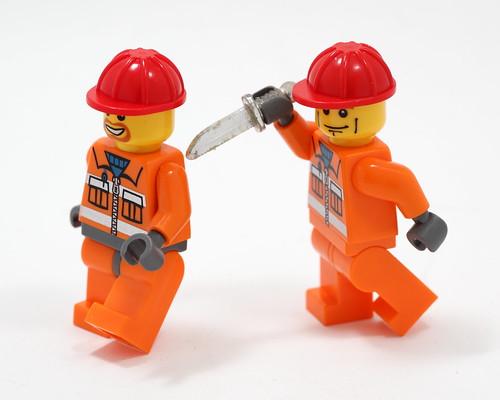
Maybe Hearthstone would be a better game if everyone entered into a gentlemen’s agreement not to use ‘cheap’ decks. But, the question of whether that would make Hearthstone a more enjoyable experience is largely irrelevant because it will never happen. There will always be that one person who uses ‘the cheap stuff’ in order to win. Some of these players won’t even feel bad about it!
In short, the problem occurs when these two fundamentally different approaches to playing games — these two worlds, if you will — collide. In such circumstances, the ‘play to win’ guys might not leave with friends but they do leave the the trophy! The question to ask yourself is “what do I want from the games I play?”. If your ambition is to win Major Hearthstone tournaments (and/or reach high Legend rank), then you need to realize what it’ll take to achieve that. You, as a person, might want to do ‘honourable’ and ‘fun things’ in Hearthstone. However, your goals may demand far greater things from you: ‘the will to win’. At which point, you must make a decision: For fun or for glory!
To those of you still reading, I will now attempt to convince you to play ‘Face Hunter’. Let’s begin!
Zoo, ‘Huntards’, and ‘Cancer’
The game has quite a long history of ‘cheap decks’. Before Curse of Naxxramas, Zoo was the deck catching the most flack (Hunter owns that crown now). These decks (and the users of such decks) are often subject to various pejorative terms. We call these decks ‘cancer’ and Hunter players ‘Huntards’. ‘Huntard’ is a portmanteau of ‘Hunter’ and ‘retard’. If I was an angst-ridden socially maladjusted whiny teenager, I would probably have no such problem with the term. But as a grown man, I personally find the phrase distasteful. Worse still, it is entirely undeserved.
Take any game object (we will call it ‘X’) and you’ll see that there are basically only three possibilities (‘X’ can refer to a class/card/deck/etc):
- ‘X’ is ‘over-powered’.
- ‘X’ is ‘normally-powered’. (i.e. it’s ‘Balanced’)
- ‘X’ is ‘under-powered’.
Let’s look at (3) first. If someone is using an under-powered card/class, do we have any right to complain? Surely most of you agree that it is both unfair and silly to insult anyone that wins a game with an under-powered strategy.
Let’s now consider (2). If some is using a balanced card/class do we have any right to complain? Again, I think it is unfair and silly to insult these people.
Lastly, let’s consider (1). Here it seems like we should have good-cause for insults! If someone is winning games due to the over-powered nature of a deck, then maybe we do have a right to question their skill and berate them for their choices. But the reality is the insults are just a consequence of our own ‘scrub mentality’. If ‘X’ truly is over-powered, then we are the idiots for not playing it!! A refusal to not use ‘X’ just demonstrates the point that we are not ‘playing to win‘.
In short, if something is balanced or under-powered, then we ought to have no genuine grievance. If something is overpowered, then we should be using it ourselves. Thus, displaying contempt for fellow players who also use overpowered decks/cards is nothing short of pure hypocrisy.
Let’s quickly look at ‘Face Hunter’. Katy’s guide for it can be found here (Note: premium membership required). Let’s go through the list of cards and decide whether the deck is overpowered, balanced, or under-powered. Of course, the question of the deck’s power is largely irrelevant if you accept my reasoning above (in which case, you might want to skip ahead to the next section),. However, some of you reading this may need a bit more convincing! [spoiler title = “Click here if that’s you”]
So what sort of ‘overpowered’ shenanigans is Face Hunter capable of?
- Is Eaglehorn Bow over-powered?
This card allows Face Hunter to do a lot of damage, which obviously makes it a good card for them. But can we say it’s overpowered? When compared to Fiery War Axe, the Hunter pays one extra mana merely for a chance of getting multiple stacks of +1 durability. Seems fair to me!
- Is Kill Command over-powered?
Just like the bow, this card is really good at getting damage in (the deck probably wouldn’t function without it). So clearly it’s useful but is it overpowered? Again, it doesn’t seem right to call this card unfair when we compare it to a Shaman’s Crackle or Lava Burst, or a Mage’s Fireball.
- Is Unleash the Hounds over-powered?
Well, this gives Hunter a nice combo with Knife Juggler and does a nice chunk of damage. But is it overpowered? Personally, I don’t think it is. The number of dogs is dependent on the number of enemy minions on board and won’t work if your board is full (ergo, the card requires– to a large extent — that you be playing ‘from behind’). If the Knife Juggler combo makes this card overpowered, then presumably we would have to ‘nerf’ Imp-losion too.
- Is Arcane Golem overpowered?
Four-damage for 3-mana is pretty good. But is it overpowered? Well, when you compare it to Wolfrider (which is another card in the deck incidentally), the Hunter is paying a fairly hefty price (i.e. effectively giving the opponent a Wild Growth) for a mere +1/+1 in stats. If two stat-points for a mana crystal is over-powered, then presumably we would also have to ‘nerf’ Felguard too. In short, the card seems fine to me.
- …and so on…
I could do this analysis for every card in the deck but I hope that’s not necessary. As fair as I am concerned the current ‘Face Hunter’ lists do not use any ‘over-powered’ cards.
[/spoiler]
In my opinion, ‘Face Hunter’ is a perfectly ‘fair deck’. ‘Fair’ in the sense that when we study each individual card, they all seem to be balanced. Therefore, we do not have good reason to call the deck ‘overpowered’. This is an important thing for you to realize; if a deck is not inherently unfair, then Blizzard is unlikely to ‘nerf’ it. Take a second or two to let that statement soak in. It is important because once you realize that Blizzard is not going to do anything about it, you can move past ‘the whining stage’ and actually do something productive, such as building a counter deck.
This small mental adjustment is a huge deal! You, as a player, are now confronting the issue head on. Meanwhile, some of your peers who believe that the deck is ‘overpowered’ probably also believe that Blizzard is going to step in and ‘nerf’ it soon; ergo, they are waiting for the ‘nerf’ (that’s not coming!) instead of innovating. Basically, your new-found attitude may actually lead to a competitive advantage.
As a matter of fact, once you finally start thinking about how to counter ‘Face Hunter’, you will quickly spot that the deck is easy to beat. Healing is more efficient than damage (e.g compare Shield Block and Healing Touch with Lava Burst and Kill Command). Moreover, the deck really struggles to get past taunts and its reliance on weapons makes it rather vulnerable to harrison-jones as well. But I digress, let’s get back on topic!
All the reasoning above begs a few simple questions:
- “Why do you insult and berate someone for playing a ‘fair deck’ that utilizes a perfectly legitimate strategy?” After all, there is no rule that says you can’t ‘go face’ with everything you have!
- If you consider the deck powerful, “Why are you not playing the deck yourself?”
- If the deck is powerful and abundant in the current meta-game “Why aren’t you playing/building the counter-deck?”
Presumably you dislike this deck due to your scrub mentality. There is — you say — something ‘cheap’ and/or ‘unskilled’ about the deck and that’s why you don’t want to play it. We could explore why you demand a deck must require skill in order for you to consider playing it. Quoting Sirlin once again, “Exploring the reasoning is futile since the notion is ridiculous from the start.”
Last time I checked [the rules], there is nothing that specifically states ‘only skill decks are allowed’. This, my dearest scrub, is an artificial rule you have burdened yourself with and it is hurting your progress! If you are ‘free-to-play’, then it is absolutely crazy that you refuse to play one of the most effective budget decks in the current meta-game!
There is, of course, another approach I could have taken; I could have tried to convince you that the deck does, in fact, require skill (after all, plenty of players have copied the deck but none have managed to replicate Xixo’s success with it (#1 legend on multiple servers). Ultimately I chose not to because such a discussion is ultimately superfluous; ‘playing to win’ is all about the results, not the why’s and how’s. Simply stated: the question of whether any deck requires a lot/little skill to pilot is completely irrelevant.
Before wrapping up this guide, let’s see what the right attitude looks like.
The Right Attitude
Some of you may be aware of the Showmatch Series. Ra-V in a premium article (here) explained his deck choices. In the comments section, there is comment that says:
NAME REDACTED:
Soo you play hunter and zoo *claps*
To which, Ra-V responds:
Ra-V:
While those are my primary decks by necessity since I’m F2P, if you look through the guides I’ve written, I think you’ll find my abilities are diverse. I don’t apologize for running strong decks, and playing any deck at top level requires great skill and forethought, in my experience, whether aggressive or control in orientation. I invite you to try playing any of my lists to Legend; I think you’ll find it sufficiently challenging to maximize their potential with good game-play.
What we can tell from Ra-V’s response is that he ain’t no scrub! Notice how utterly unapologetic he is about about playing the best decks in the format/meta-game. He also makes another point; ‘Hunter’ and ‘Zoo’ are not the only decks he plays. In many respects, it is unfortunate that players feel the need to point out that they play other decks too. If you are the sort of player that likes to ‘rage friend request’ after losing to a ‘cancer deck’, it is worth remembering that your opponent has quite possibly played thousands of games; only a tiny faction of which may have been with one of the offending ‘skill-less cancer decks’ you love to hate.
You play one game against someone using ‘Face Hunter’ and you immediately assume to know exactly what sort of person they are. Doesn’t that strike you as a bit silly?
In contrast to Ra-V, when it came for my Showmatch against YelloRambo, I brought some innovative decks, which you can learn about by clicking here (Note: premium membership required). It is equally true however, that it was been one of the most lopsided battles in the series so far (I lost 4-1). And guess what? The game rewards strong decks, not those that lose ‘with style‘; the game simply doesn’t care how ‘clever’ or ‘unique’ I was. The difference between a scrub and myself is that I knew going into the match my choice of decks put me at a disadvantage. Moreover, unlike a scrub, I was not delusional; when I made my choice I knew that I wasn’t truly ‘playing to win’. And that’s fine.
Conclusion
Okay so that concludes Part One of the guide. Hopefully I have taught you scrubs 🙂 a valuable lesson and have shown you what one must do in order to progress in this game. If you want to play for fun, that’s fine. If you want to win, that’s fine too. But whatever you do, don’t be delusional and think you are ‘playing to win’ when, in fact, you are playing the game with a bunch of arbitrary made-up rules that are weighing you down. Remove the burden and you’ll run faster!
The only things left for you to do now is check out Part Two, like and/or comment on Part One, and finally (but most importantly) reflect on all of those self-imposed rules potentially harming your performance.
A Quick Glance at Part Two
Part two was...drum roll please…finally released today. What is it about? Well, the article focuses on two very simple ideas: if you want to win you should (1) Rope every single turn and (2) always wait for your opponent to mulligan his/her cards away before your own.
As you can probably tell from that brief description, part two is only indirectly related to part one. The connection is basically the idea that the gut reaction of most players would be to reject the tactics I express in part two. Ergo the job of part one was to mentally prepare you for the rocky road ahead.
Further Reading & References
- Smashthings, ‘Playing to Win Part Two: Ropes & Mulligans’
- David Sirlin, ‘Playing to Win‘
- Mark Newheiser, ‘Playing to Win and a Philosophy of Competition in Gaming’
- TLC, ‘No Scrubs‘
About the Author
2x Legend, Infinite Arena Player. Click here for my YouTube channel and click here for a list of all my published HSP articles.


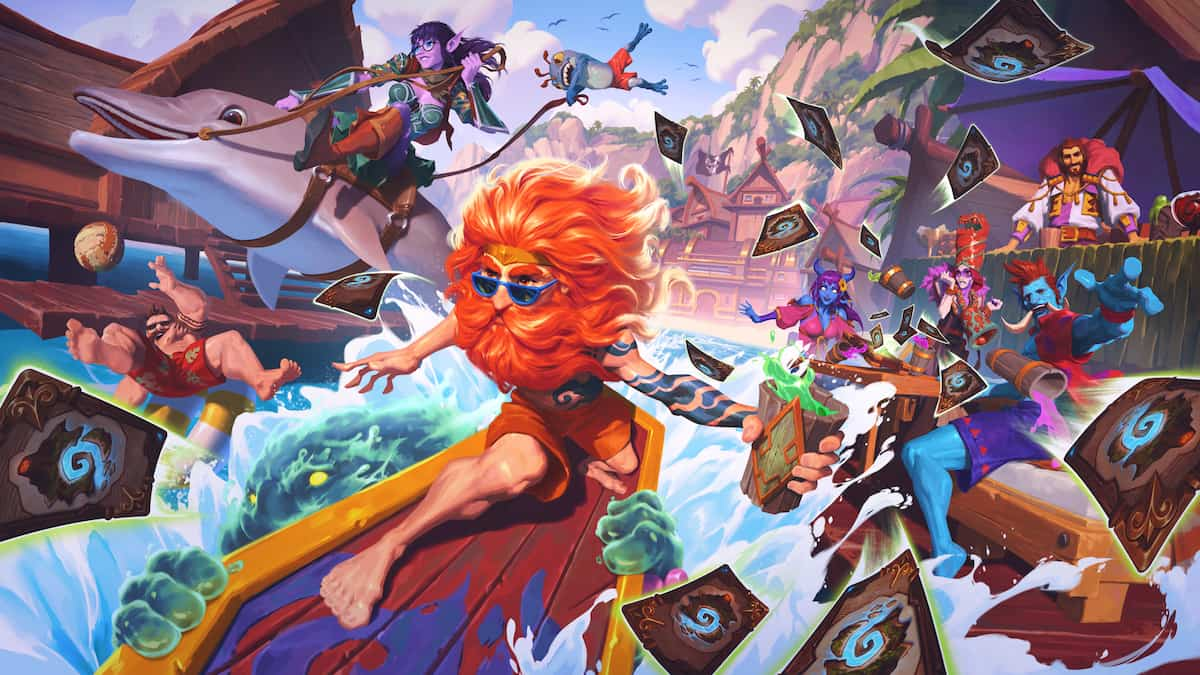

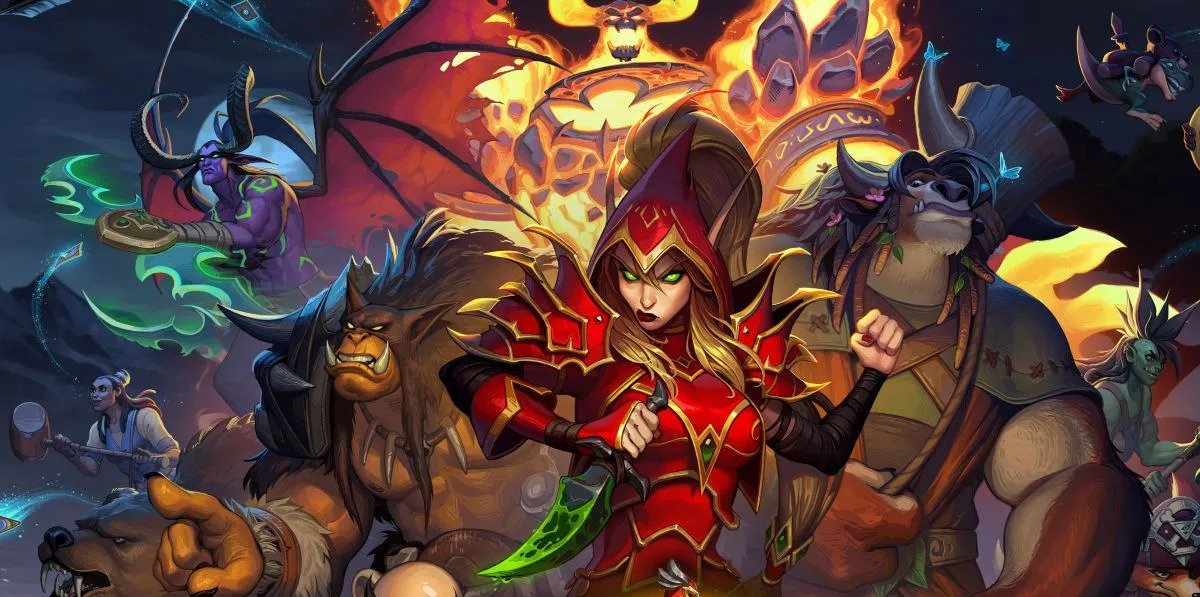
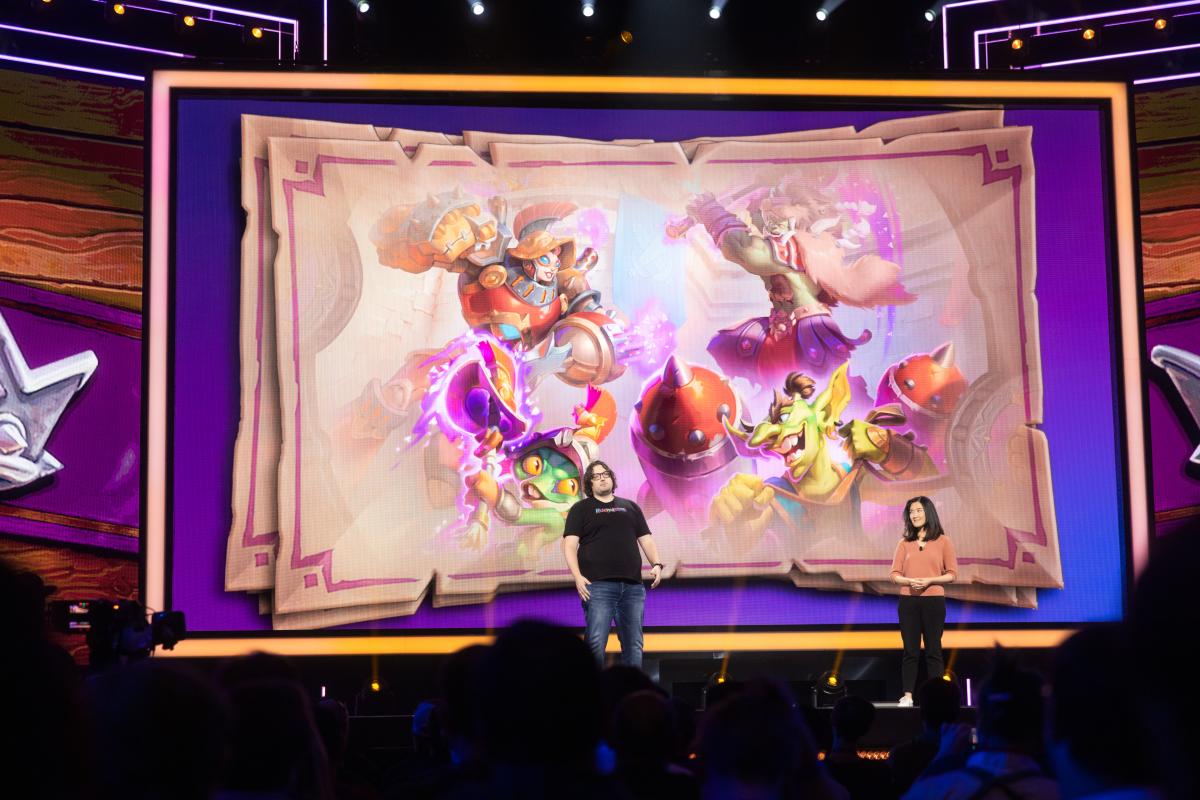
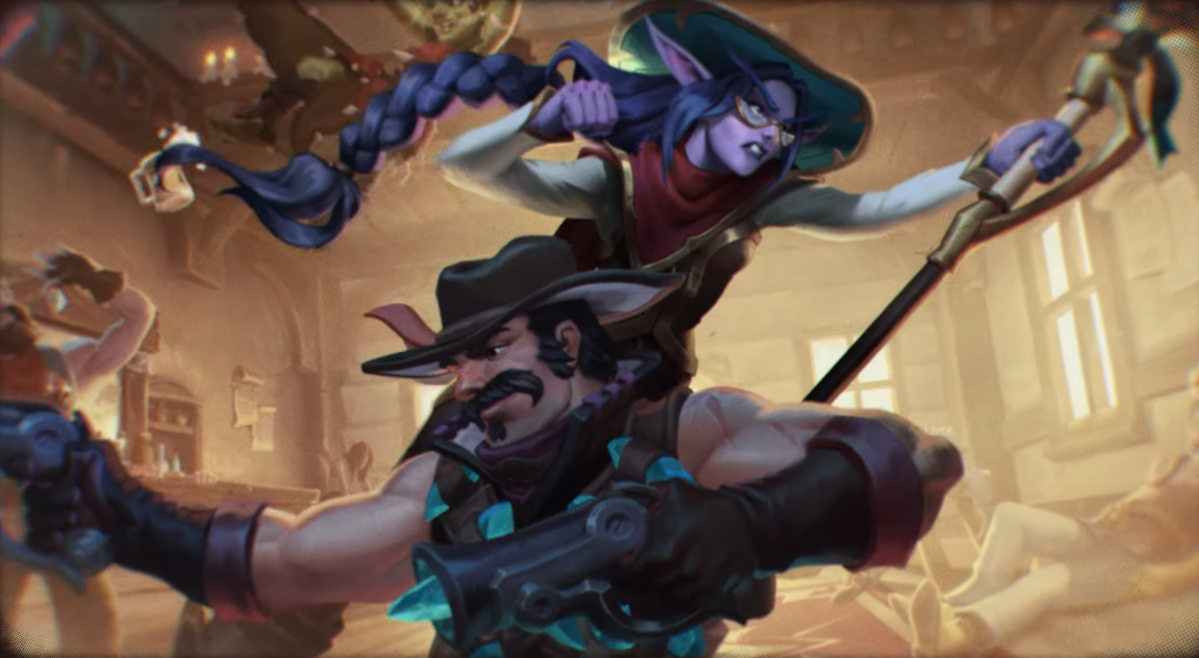
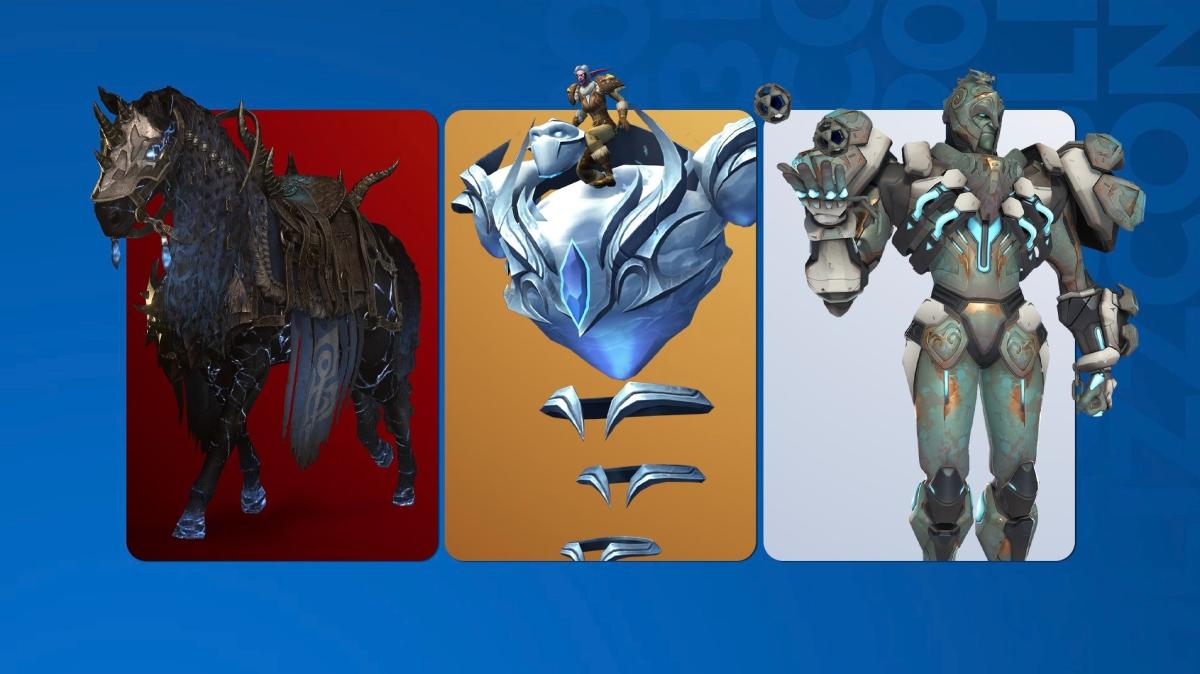

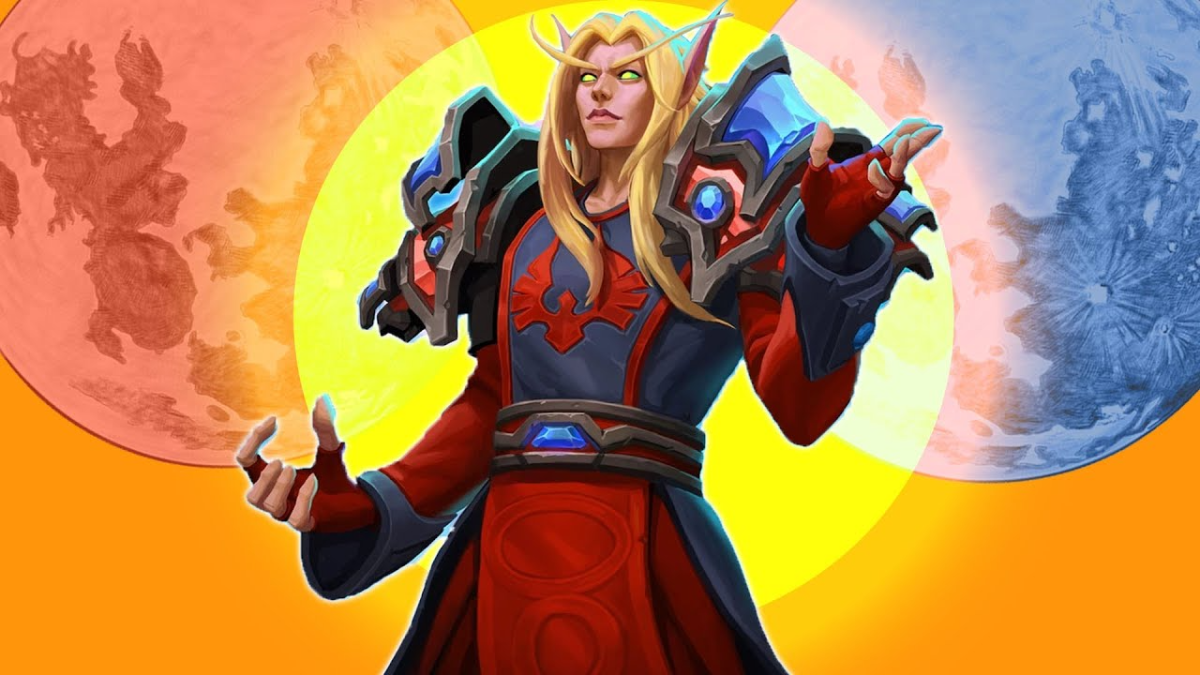
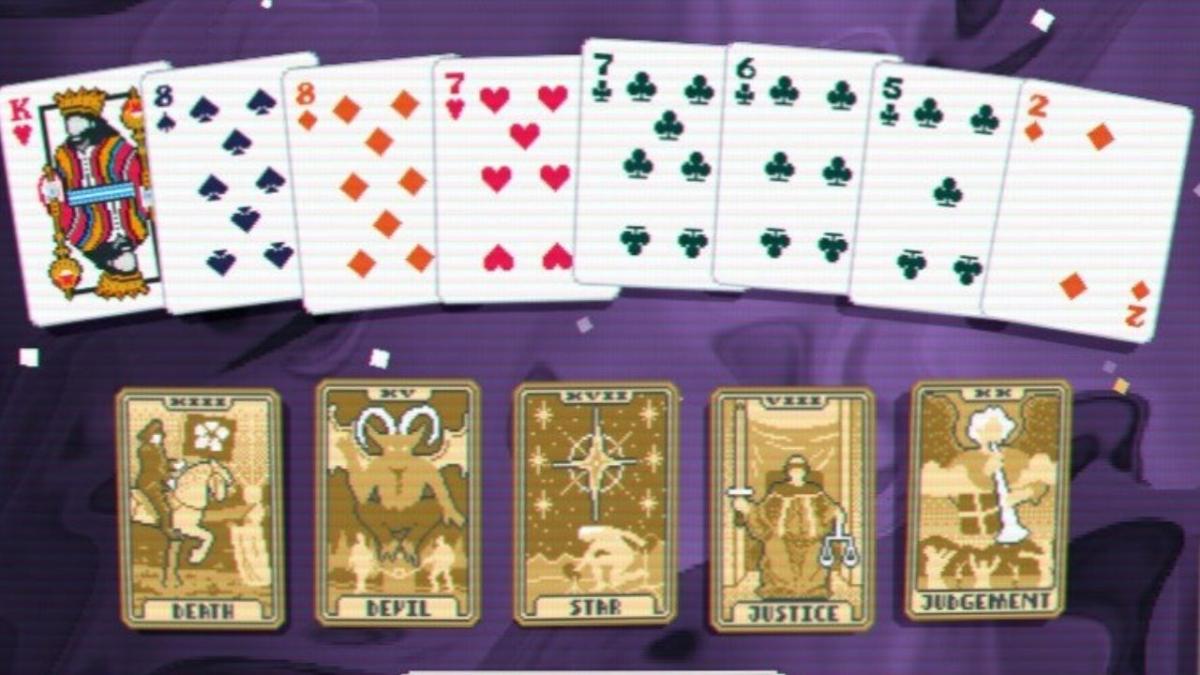
Published: Mar 3, 2015 09:01 am